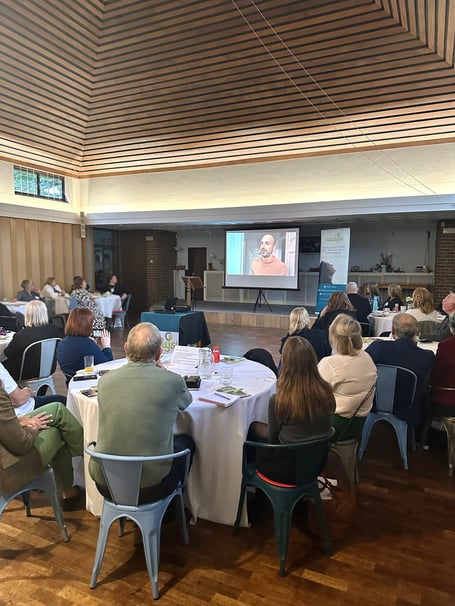A Surrey charity showed a film to raise awareness about cuckooing and the impact it has on victims.
On September 25, the cuckooing team from charity Catalyst Support presented a film called Steven’s Story.
Catalyst Support delivers a specialist outreach programme to help victims of cuckooing. The short film is based on the true story of a client who had been supported by the programme.
Cuckooing sees criminals exploit vulnerable individuals to take over their home and use it for illegal activity. In Surrey, the issue is increasingly relevant, as county-lines criminals move their operations into the suburbs.
Steven’s Story is a short film based on true events, produced by Ton Mazzone in collaboration with Catalyst Support’s Cuckooing Outreach Service. The story starts with the main character, Steven, offering a homeless man ‘Scraps’, a place to stay in his apartment. Though originally friendly, Scraps starts to invite others round to Steven’s home, where they soon set up a drug operation.
Steven is pressured into using drugs and is manipulated by the gang to work for them as they monopolise his home. Eventually, a neighbour recognises there is a problem and contacts the police who refer him to Catalyst Support.
The film leaves on a positive note as Steven is five months clean, has reclaimed his home and has found employment again.
Surrey Police and Crime Commissioner Lisa Townsend helps fund Catalyst’s cuckooing service. She said that the film “really does bring home the awful truth of cuckooing”.
She added: “Imagine your home turning from a safe haven into a terrifying environment and those who cuckoo others are predators.”
Karen Jones leads the outreach programme at Catalyst Support.
She said: “Of the 511 referrals we’ve received since the opening of the service in 2018, 85 per cent were for individuals who have a history of drug or alcohol misuse.
“Whilst this may be the trait that makes people most susceptible, there are numerous vulnerabilities that mean people fall victim to cuckooing.
“Seven per cent of people referred to us were over 70 years old, the oldest victim being 93, and the majority have received mental or physical health diagnoses that impact their wellbeing.”
Cuckooing is not yet a standalone offence, meaning perpetrators can only be punished on associated offences. In May, it came close to becoming a punishable offence, but the General Election halted progress in amending the necessary bill.
The charity works with people who have already fallen victim to cuckooing, but also with perpetrators and people who could be prone to exploitation.
Ms Jones emphasised that help from the community can be pivotal in preventing cuckooing and listed some things to look out for in the behaviour of a vulnerable person
She added: “They might start talking about a new friend who is helping them. They might become withdrawn or cancel home visits.
“Somebody else might start answering their phone and they might appear to be more financially unstable. Referrals have come from family members, doctors, neighbours, vicars and friends.”





Comments
This article has no comments yet. Be the first to leave a comment.